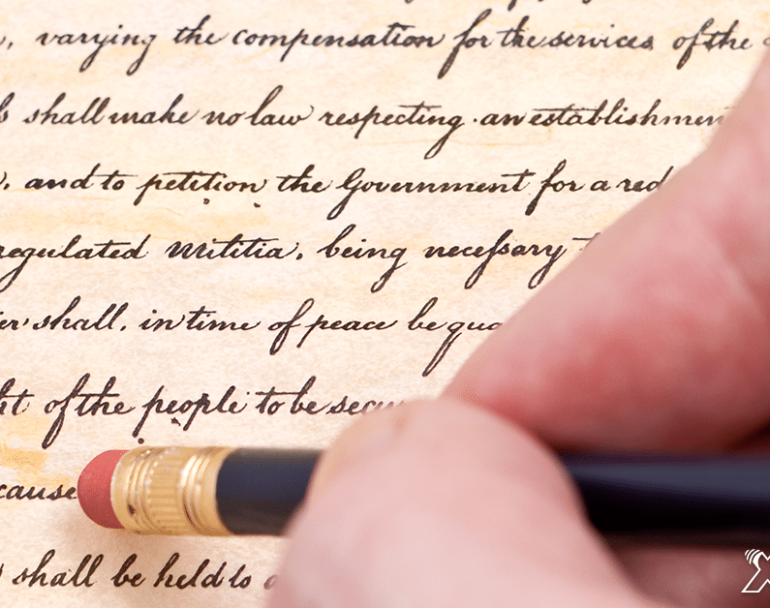
Geofence Warrants: A High-Tech Repeat From the Revolution
By: Mike Maharrey
Judges across the U.S. are issuing search warrants that effectively authorize police to search broad geographical areas to determine who was near a given place at a given time. In practice, these warrants give police permission to use Google location data to engage in massive fishing expeditions and subject hundreds, if not thousands, of innocent people to police location tracking.
Prior to the American Revolution, the British claimed the authority to issue Writs of Assistance allowing government agents to enter private homes and businesses to search for evidence of smuggling. These general warrants did not specify the place to be searched, nor limit what these government agents could search for. They never expired and were considered a valid substitute for specific search warrants. Writs of Assistance were also transferable to other officials. They basically served as a go anywhere and do anything permission slip for government agents.
These general warrants were an early flashpoint between the British government and American colonists in the years leading up to the War for Independence. While the modern location tracking warrants issued today by both federal and state judges don’t give police powers quite as broad as Writs of Assitance gave British customs agents, they come very close.
Today, officials call them “geofence” warrants. In practice, judges issue warrants authorizing police to search Google’s massive location tracking database for all of the phones within a given geographical area during a specific timeframe. According to the New York Times, federal agents first utilized the practice in 2016.
According to the Times, these broadly construed warrants help police pinpoint possible suspects and witnesses in the absence of other clues. Google employees said the company often responds to a single warrant with location information on dozens or hundreds of devices.
North Carolina produced the first public reports of this investigative tactic last year after detectives obtained warrants to obtain location data for all the phones that were in the area of two shootings. According to WRAL, “On a satellite image, they drew shapes around the crime scenes, marking the coordinates on the map. Then they convinced a Wake County judge they had enough probable cause to order Google to hand over account identifiers on every single cell phone that crossed the digital cordon during certain times.”
Police did not demand information on specific suspects. As WRAL put it, investigators got information about “any mobile devices that veered too close to the scene of a crime.”
In many cases, geofence warrants come with gag orders. According to WRAL, “These warrants often prevent the technology giant for months from disclosing information about the searches not just to potential suspects, but to any users swept up in the search.”
The Google database known as Sensorvault holds detailed location records of at least “hundreds of millions of devices worldwide” dating back nearly a decade, according to Google employees interviewed by the New York Times. One employee told the Times the company has received as many as 180 requests for location information in a single week.
Police say this investigative tactic can help break cases open. But in fact, it unwittingly sweeps hundreds or thousands of innocent people into a criminal investigation. These individuals suddenly find themselves in police crosshairs merely for the simple act of walking or driving through a given location at a given time.
And of course, this kind of data is imprecise. The New York Times opened its report on geofence warrants with the story of an Arizona man whom police arrested in a murder investigation based on location data and other circumstantial evidence. He spent a week in jail before investigators realized they had the wrong guy.
A San Mateo County, California, Sheriff’s Office intelligence analyst admitted that although Google’s data-cache is enormous, it doesn’t sweep up every phone in the area, and even if a location is recorded every few minutes, that may not coincide with a crime. Furthermore, the fact that a device was in a given place doesn’t tell you who had it at the time.
Brooklyn Park, Minnesota Deputy Police Chief Mark Bruley called these warrants a “game-changer.” And his comments reveal just who intrusive these warrants are.
“It shows the whole pattern of life.”
The founders included the Fourth Amendment in the Bill of Rights because they vividly remembered the abuse they suffered at the hands of British agents wielding general warrants. To prevent a repeat performance, they insisted that government agents must meet a high level of specificity before subjecting a person to search or arrest. Using a warrant to access information that “shows the whole pattern of life” shreds these fundamental limits on government power.